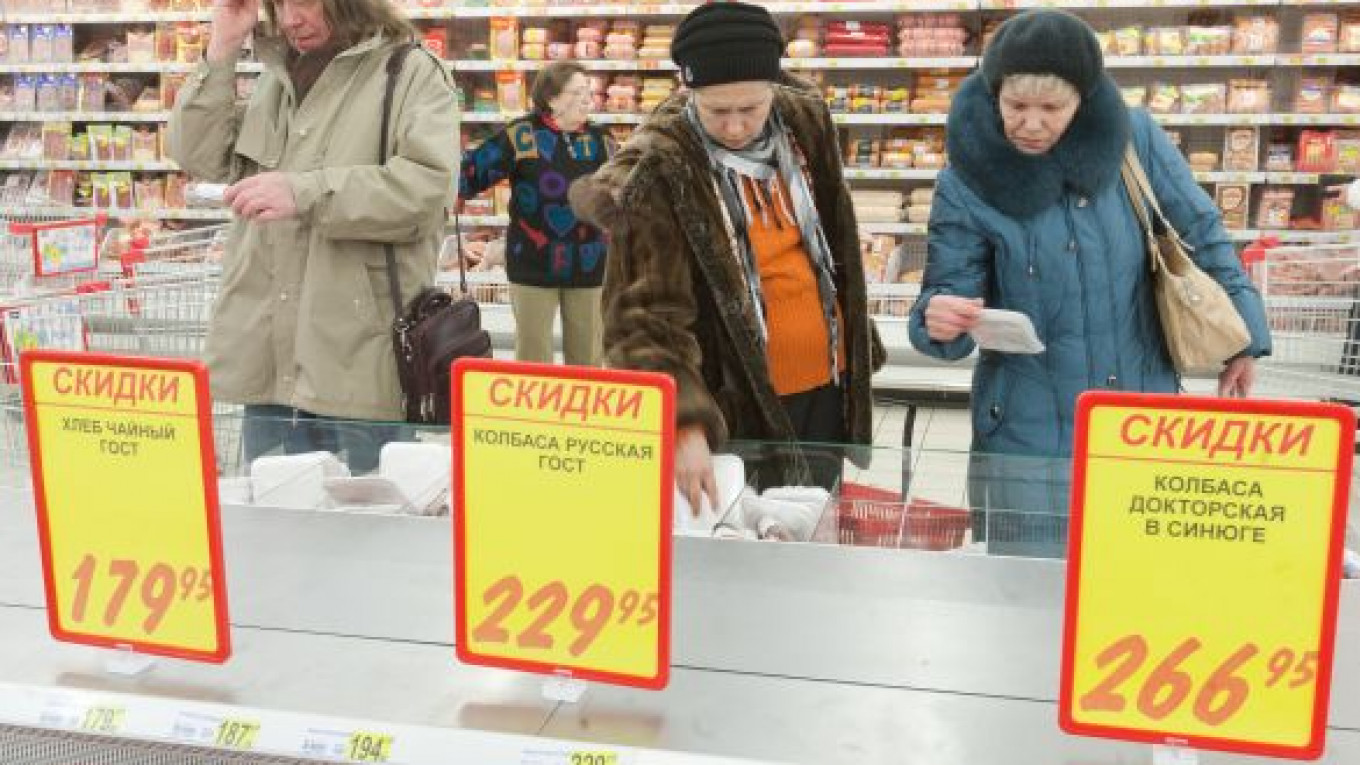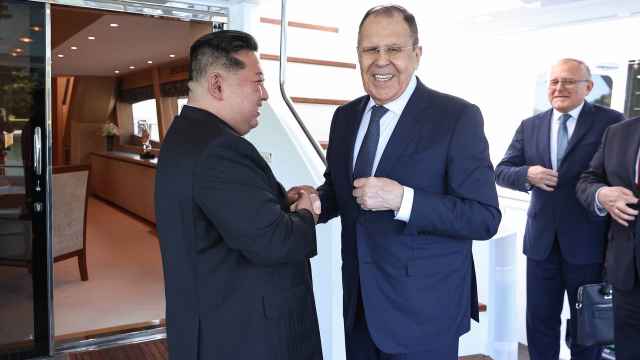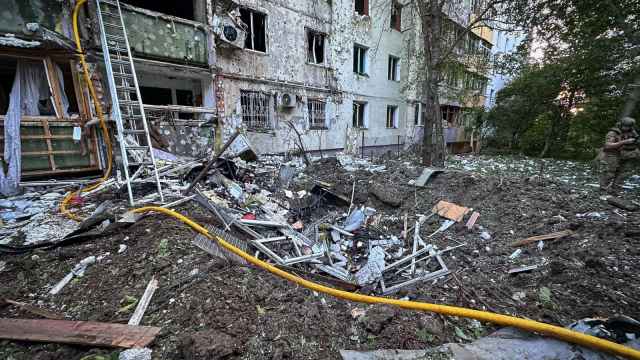Food could cost 15 percent less, communications could go down by 10 percent, and real estate could be 25 to 30 percent cheaper.
The problem is bureaucracy and legalized corruption, government experts say.
A group analyzing the competitive environment of Russia's economy, as part of an update to the overall national development strategy, has identified defective institutions that impede business activity and economic growth and are part of the cause of higher prices for goods and services.
An ineffective and corrupt bureaucracy has the greatest effect on the real estate sector: the construction of office buildings and stores, the establishment of farms and rental of land, according to a report issued by the European University in St. Petersburg.
Defective institutions are responsible for 25 to 30 percent of the price of housing and commercial real estate — in Moscow, they are responsible for up to 60 percent of those prices — as well as adding 15 percent to the prices of retail goods and 10 percent to the cost of communications.
In the real estate sector, a system has arisen to generate income completely legally through inspections and permits, said co-author of the report Vadim Volkov. Many government offices have supposedly private companies "in their pockets" that thrive on an informal monopoly over the provision of a variety of those documents.
Procedures involved in obtaining permits lead to a doubling of construction costs. Bribes to reduce administrative hurdles constitute 5 to 15 percent of the cost of a project, and unofficial payments to facilitate utilities hookups come to another 7 to 10 percent.
The State and Municipal Management Institute at the Higher School of Economics has calculated that the amount of "informal" payments in the construction of apartment buildings is on average seven times greater than the cost of official permits.
Officials have so much discretion that they do not have to break the law to generate corrupt income, said institute spokesman Sergei Plaksin. Informal payments are often made at the initiative of a business that has broken a rule, and the rules are written to encourage violation.
"If supervisory bodies were to follow the law in full, not a single building could ever make it to occupancy," said Dmitry Potapenko, managing partner of Management Development Group, which owns the Gastronomchik and Prodeko chains.
They hold one hand out to businessmen, while the other is poised to slap them, said Gennady Lobanov of the business lobby Opora.
"The cost of permits from various authorities can come to between 30 percent and 60 percent of the cost of erecting a building, depending on the region and the complexity of the project," Potapenko said. Permits can take years to get, as was the case with the IKEA shopping center in Samara, for example. The Swedish chain began construction in 2006 and still cannot get the necessary permits to open it. Instead of the planned investment of 4 billion rubles ($146 million), IKEA has been forced to spend twice that much on the project.
The markup on the purchase price of goods can be up to 25 percent of the final price, but the net profit is no more than 3 percent, Potapenko said.
Those are average figures for the sector, executive director of the Association of Retail Trading Companies Ilya Belonovsky agreed.
"Do you want communications? Fine. Here's the price. You choose among a limited number of companies on the market. You want a sewer hookup? There is only one institute that will carry out the inspection," the university's report quotes the co-owner of a retail chain as saying.
"You don't know how much it will cost to hook up to the water, the sewer; how much time it will take to get the permits. You don't even know what year you will open your hotel in," a hotel owner told the authors of the report.
Because of the high unpredictability and risks, the horizon for business planning does not exceed five years, so the businessmen's desire to recoup their investment quickly also leads to higher prices.
The short return-on-investment period raises the price of goods by 10 percent, and high capital costs cause a 3 percent increase and added operational costs because of poor regulation add another 3 percent — that is, about 16 percent of the 25 to 30 percent retail markup, the experts conclude from calculations made at a chain of 25 superstores. If it were not for defective institutions, the markup would be only half of what it is now.
Researchers from the Higher School of Economics institute compared the time and money spent to receive comparable packages of government services by an auto parts maker in the Kip-Master technical park in Tatarstan, created on the initiative of the republic's President Rustam Minnikhanov, and a group of businesses with the same specialty in Samara.
It cost 30 percent less to be connected to the infrastructure in Tatarstan and took just over 20 percent of the time, compared with Samara.
So the government can make the system more effective if it wants to, said Andrei Yakovlev, director of the Higher School of Economics Institute of Analysis of Businesses and Markets. The problem of defective institutions is broader than just bribery, he said. The system operates without stimuli in monopolistic structures that derive income from their functions.
Retailer O'Key said in a memorandum prepared for its initial public offering that the highest construction costs are in the Northwest Federal District, Moscow and the Moscow region. It listed multiyear waits for construction and occupancy permits among its risks. The retailer lost two plots of land due to its inability to begin construction on time.
About 30 permits are needed in Moscow before the government will begin considering construction proposals, and none of the permits are mandated by federal law, Mayor Sergei Sobyanin said. Unnecessary permits have now been eliminated. The permit process will now take a maximum of six months, as opposed to 1 1/2 to three years previously, said Leonid Kazinets, adviser to First Deputy Mayor Vladimir Resin.
A Message from The Moscow Times:
Dear readers,
We are facing unprecedented challenges. Russia's Prosecutor General's Office has designated The Moscow Times as an "undesirable" organization, criminalizing our work and putting our staff at risk of prosecution. This follows our earlier unjust labeling as a "foreign agent."
These actions are direct attempts to silence independent journalism in Russia. The authorities claim our work "discredits the decisions of the Russian leadership." We see things differently: we strive to provide accurate, unbiased reporting on Russia.
We, the journalists of The Moscow Times, refuse to be silenced. But to continue our work, we need your help.
Your support, no matter how small, makes a world of difference. If you can, please support us monthly starting from just $2. It's quick to set up, and every contribution makes a significant impact.
By supporting The Moscow Times, you're defending open, independent journalism in the face of repression. Thank you for standing with us.
Remind me later.






